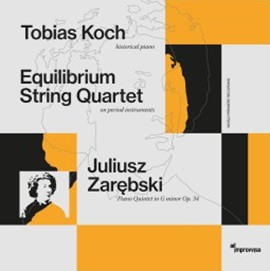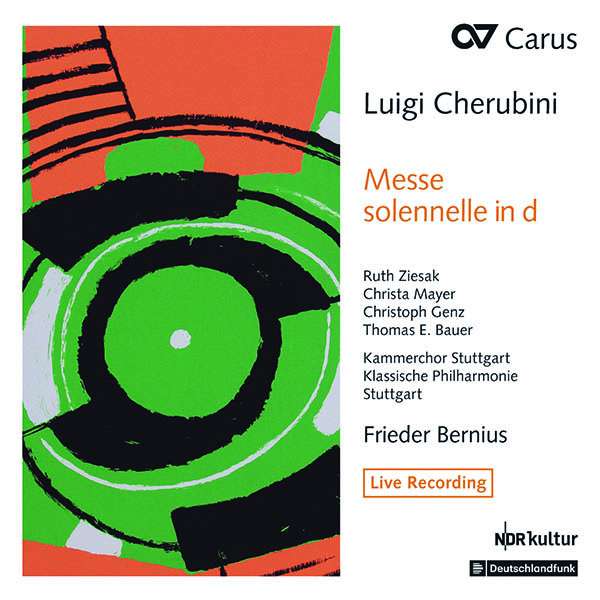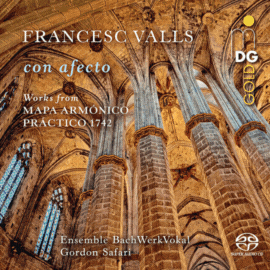 Luigi Cherubini: Missa Solemnis Nr. 2 d-Moll; Ruth Ziesak (Sopran), Christa Mayer (Alt), Christoph Genz (Tenor), Thomas E. Bauer (Bass), Kammerchor Stuttgart, Klassische Philharmonie Stuttgart, Frieder Bernius; 1 CD Carus 83.512; Aufnahme 07/2001, Veröffentlichung 09/2020 (75'41) – Rezension von Jan-Geert Wolff
Luigi Cherubini: Missa Solemnis Nr. 2 d-Moll; Ruth Ziesak (Sopran), Christa Mayer (Alt), Christoph Genz (Tenor), Thomas E. Bauer (Bass), Kammerchor Stuttgart, Klassische Philharmonie Stuttgart, Frieder Bernius; 1 CD Carus 83.512; Aufnahme 07/2001, Veröffentlichung 09/2020 (75'41) – Rezension von Jan-Geert Wolff
Die Musik Luigi Cherubinis scheint derzeit ein Stück weit neu entdeckt zu werden: 2017 ergänzte der Kammerchor der Frauenkirche Dresden unter Matthias Grünert die Einspielungen des Requiems und zog Anfang dieses Jahres mit geistlichen Chorwerken des vor 270 Jahren geborenen Komponisten nach (beide Rondeau). Auch der Carus-Verlag widmet sich nun nach einer gefeierten Requiem-Einspielung von 2010 erneut Cherubini: und zwar der Missa Solemnis Nr. 2 d-Moll, interpretiert von Frieder Bernius und seinem Kammerchor Stuttgart.
Gerade Aufnahmen dieses Werks scheinen eine gewisse Reifezeit einzufordern: Als es von Helmuth Rilling 1992 mit der Gächinger Kantorei aufgenommen wurde, dauerte es sieben Jahre bis zum Erscheinen 1999. Im gleichen Jahr wie die genannte entstand eine Einspielung mit dem Münchner Motettenchor unter Hans Rudolf Zöbeley, kam jedoch erst 2011 auf den Markt. Auch die vorliegende Bernius-Aufnahme ist bereits fast 20 Jahre alt: ein Livemitschnitt eines Konzerts im Rahmen des Schleswig-Holstein-Musikfestivals im Jahr 2001.
Insofern stellt die CD das Schaffen von Chor und Solisten erst mal in der Retrospektive dar. Die Aufnahmequalität lässt jedoch keine Wünsche offen und bildet Chor, Orchester und Solisten als überzeugende Einheit ab. Der Klang ist üppig und doch transparent; Ruth Ziesak (Sopran), Christa Mayer (Alt), Christoph Genz (Tenor) und Thomas E. Bauer (Bass) gestalten ansprechend und sich klanglich ergänzend, der Chor präsentiert sich in gewohnter Qualität, sprich höchst kultiviert und homogen, das Orchester rundet den Charakter dieser Einspielung akzentuiert und überzeugend ab.
Bernius reißt den Hörer auch nach 20 Jahren mitten hinein in die spannende Melodik von Cherubinis Missa und präsentiert die harmonischen Überraschungen, die diese Musik beinhaltet, äußerst lebendig. Die Aufnahme bildet auch die feinfühlige Instrumentierung des Werks trefflich ab: rund und voll tönend, doch nie zu breit, sondern dynamisch stets elegant abgestuft.
Im Booklet findet sich darüber hinaus eine interessante Einlassung des Dirigenten zum Thema ‘Livemitschnitt versus Studioproduktion’, die bei allem Pro und Contra vor allem die Aufmerksamkeit auf Cherubinis bislang eben nicht allzu oft musizierte Missa Solemnis lenkt. Bernius versichert, dass hier keinerlei Nachaufnahmen angesetzt waren, sondern die Aufnahme das Konzert 1:1 abbildet – und damit eine tadellose Leistung aller Beteiligten. Mit seiner Interpretation gelingt es ihnen, ein weiteres Werk Cherubinis (und damit diesen Tonschöpfer selbst) wieder neu zu entdecken. Insofern war der Griff ins Archiv des NDR nicht nur beherzt, sondern auch an – und bemerkenswert in der Zeit.
Luigi Cherubini’s music is more and more recorded: in 2017 the chamber choir of the Frauenkirche Dresden under Matthias Grünert completed the recordings of the Requiem and followed up at the beginning of this year with sacred choral works by the composer (both Rondeau). After a celebrated Requiem recording in 2010, Carus-Verlag is now once again dedicating itself to Cherubini: the Missa Solemnis No. 2 in D minor, perfomed by Frieder Bernius and his Kammerchor Stuttgart.
Especially recordings of this work seem to demand a certain time to be released: When it was recorded by Helmuth Rilling in 1992 with the Gächinger Kantorei, it took seven years until it was released in 1999. In the same year as the above-mentioned one, a recording was made with the Münchner Motettenchor under Hans Rudolf Zöbeley, but was not released until 2011. The present Bernius recording is also almost 20 years old: a live recording of a concert at the Schleswig-Holstein Music Festival in 2001.
In this respect, the CD is a retrospective of the work of the choir and soloists. The recording quality, however, leaves nothing to be desired and shows the choir, orchestra and soloists as a convincing unity. The sound is lush and yet transparent; Ruth Ziesak (soprano), Christa Mayer (alto), Christoph Genz (tenor) and Thomas E. Bauer (bass) create an appealing and complementary sound, the choir presents itself in its usual quality, i.e. highly cultivated and homogeneous, the orchestra rounds off the character of this recording in an accentuated and convincing manner.
Even after 20 years Bernius pulls the listener right into the middle of the exciting melodies of Cherubini’s Missa and presents the harmonic surprises that this music contains in an extremely lively way. The recording also perfectly reflects the sensitive instrumentation of the work: round and full-sounding, yet never too broad, but dynamically always elegantly graded.
The booklet also contains an interesting comment by the conductor on the subject of ‘live recording versus studio production’, which, despite all the pros and cons, draws attention to Cherubini’s Missa Solemnis, which has not been played too often up to now. Bernius assures that no post-recording was scheduled here, but that the recording reproduces the concert 1:1 – and thus an impeccable performance by all those involved. In this respect, reaching into the archives of the NDR was not only courageous, but also – and remarkably in time.























